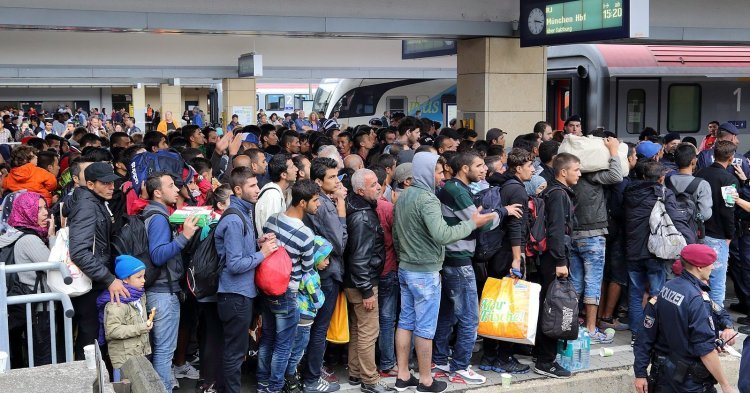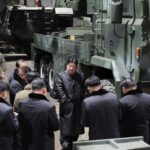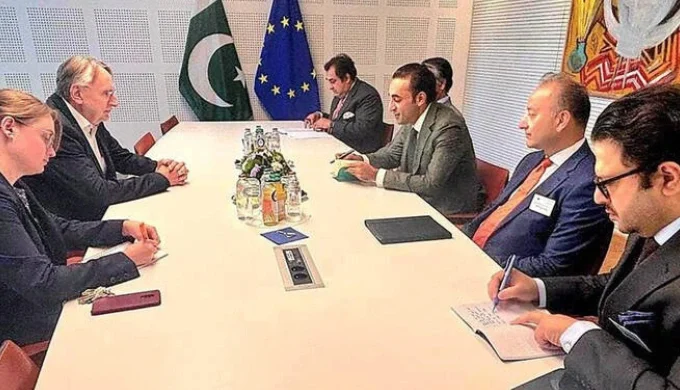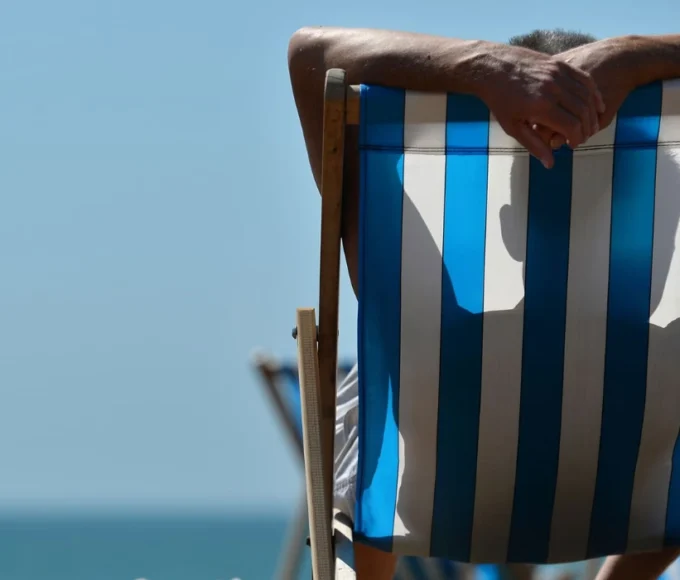Germany, Italy, Sweden, France, Denmark, United Kingdom, European Union (EU)… new measures against immigration have multiplied on the European continent in recent years. This phenomenon is evolving in parallel with an unprecedented rise in far-right parties and movements in Europe, which for some embody the solution to this “scourge”. Across Europe, the political landscape has begun an unimaginable change since the end of the Second World War. European society seems to be closing in on itself on the grounds that immigration is responsible for all its ills. Truth or scapegoat? Is immigration really the problem of European societies? Let’s start by doing a little history. (1/4)
A story of cycles
End of 2010, beginning of 2011. In a number of Arab countries, revolt is brewing. If some resist the popular storm through social reforms or repression, others are swept away. In turn, the people of Tunisia, Libya and Egypt brought down their authoritarian regimes and put a democratic government in their place. But the combativeness of a regime will mark the beginning of the failure of the “Arab Spring”. Bashar al-Assad’s Syria refuses to let the people take their destiny into their own hands and unleashes hell. The repression is terrible, the country becomes a battlefield. In a context that has become unbearable, the Syrian population is fleeing massively to neighboring countries, for the majority, and to Europe for a small part. Between 6 and 8 million people are displaced, inside and outside Syria, or almost 60% of the population (the country has 13 million inhabitants). In 2015, pressure at the borders of the European Union is extremely strong. Thousands of refugees are waiting in Türkiye to reach the Old Continent. Europeans must choose. Continue to feign ignorance of the situation, or open the borders. German Chancellor Angela Merkel chooses humanity. With the cry of “Wir schaffen das!”, she decides to welcome the majority of the refugees. The example is followed differently by other EU member states. The reception of refugees does not seem to concern other European states in the same way.
The crisis is unprecedented in Europe. However, not only has the EU by far not welcomed the majority of the exiled Syrian population, but moreover, the Member States have experienced others, even before the start of European construction. The French historian of immigration, Pascal Blanchard, does not fail to remind us of the importance of these phenomena since the French Revolution: “The contribution of immigration is constitutive of all the issues […]. The question is not to seek, initially, whether this contribution is “positive” or “negative”, it is first of all a fact. A precise fact, which for more than two centuries has been an essential component of our identities, our demographics, the changes in our regions […]”. [1] Immigration was indeed a cyclical phenomenon during the 19th and 20th centuries. If Europe was certainly a land of massive emigration during the crises of these two centuries, it was for the most part a land of welcome. Thus, in France, the colonial empire largely contributed to integrating black and Arab components into society. In the same way, the United Kingdom saw the arrival of a certain number of nationals from its African and Asian colonies who shaped the face of its population.
The big waves occurred after the two world conflicts. Ruined, the belligerents called on labor, largely European. Thus, Portuguese, Spanish, Polish, Belgians, Italians gave their labor force to rebuild France or Germany. In addition, France once again called on its colonial workforce after having enlisted them under the flags. Algerians and Moroccans make up the leading contingent, ahead of the Senegalese and Malians. Germany, for its part, is beginning to welcome what will become its main diaspora, the Turks. Belgium draws from its imposing colony of Congo. In short, Europe’s “white and Christian” heritage is becoming even more of a constituent part of the DNA of European societies. Today in France, more than a quarter of French people are of non-European origin. The grandchildren of these working immigrants still live in France today and have French nationality. But the attitude of openness and desire for integration will be seriously undermined by two major events.
In France, the Algerian war of independence will open a divide in society, between those who would like to keep Algeria in the French colonial empire, the future core of the far-right party “National Front”, and those who are in favor of a settlement of the conflict at the price of the independence of Algeria, in the name of the right to self-determination of peoples (Wilson, 1919). Despite the Evian Accords of 1962, many Algerians continue to come to France. The peace agreements leave wide doors open for them, with procedural or integration advantages that other nationalities do not have. This is the example of the 1968 agreement, which grants Algerian nationals a special status in France. The other nationalities of the former French colonial empire did the same after their respective independence. If opposition to these arrivals is not absent, it nevertheless remains minimal and the prerogative of a few movements nostalgic for “Greater France”. The trend will begin to reverse with the first oil shock. In 1973, the Arab countries at war with Israel decided to strike a major blow and reduce their oil production. The crisis is reaching European countries. The economies of the Old Continent are losing their fuel, industries are having to lay off workers, unemployment is increasing. The “Trente Glorieuses” ended under the onslaught of the deficit, inflation and the drop in production.
And the far right returned…
Double-digit growth gives way to just one. Social crises are growing. The political world is once again facing the fracturing of society. The year before the oil crisis, a former member of the Waffen-SS, Pierre Bousquet, and a former Poujadist who served in the ranks of the French army in Algeria, Jean-Marie Le Pen, created the “National Front” (FN ). An openly racist far-right party, nostalgic for colonial France. The oil crisis served as a first step for this party which, in the 1980s, accused immigrants of exacerbating the crisis by stealing jobs that it considered should be primarily intended for the French. Even though the president of the National Front, Jean-Marie Le Pen, is largely marginalized by the political class and public opinion, a tremendous opportunity to place himself in the spotlight will be given to him by none other than the President of the Republic himself, a certain François Mitterrand.
Jean-Marie Le Pen complains of being reduced to silence, claims that he is being prevented from accessing television sets and newspaper columns. It must be said that French society is still traumatized by the crimes of the National Socialists on its soil during the Second World War. At the time of the trial against Klaus Barbie [2], former Gestapo officer, the first trial for crimes against humanity tried in France, the far right embodies the absolute devil, the risk of an Act II. The former Poujadist sent a letter to the President of the Republic to express his grievances, complaining of “ostracism” from his movement. François Mitterrand sees in the appearance of Jean-Marie Le Pen on the media scene an opportunity to put a spoke in the wheels of the right. He then maneuvered so that the president of the FN could appear in a few minor broadcasts, and especially in L’heure de Vérité on February 13, 1984, where he would have almost an hour and a half to display his political convictions, including those on immigrants.
While history teaches its lessons about the risks of far-right movements taking power, the political and social upheavals of the 21st century have nevertheless been at the origin of a return of these parties, almost everywhere in Europe. Immigration “is the fuel”, in the words of Fabienne Keller, MEP from the Renew group and involved in the European Parliament on migration issues, for Le Taurillon [4], of this old unseized engine. The refugee crisis from 2015 to 2018 gave it tremendous momentum. The election of Donald Trump as President of the United States of America in 2016 ended up opening Pandora’s box. While all the liberal democracies in the world are stunned by the results, nationalist and sovereignist leaders and candidates are rubbing their hands. From now on, the chances of accessing supreme office are no longer illusions, but a possibility undoubtedly closer than ever. The proof: the first world power, the leader of the free world, the first democracy in the world, opened the doors of power to a populist leader fundamentally anchored to the right.
Immigration remains more than ever the battlehorse of far-right movements in Europe, which want to defend a “European way of life”. And the mayonnaise sets. It is even spreading more and more in mentalities, through the media. The wave hits Europe head on, election after election, throughout the 2020s. Sweden, Finland, accustomed to social democratic governments, the Netherlands, bastions of liberal democracy, Slovakia make the choice to give the extreme right the opportunity to participate in government. Italy installs nationalists at the head of government for the third time in its history. They all campaigned on one objective: to reduce or even completely prevent immigration, which is responsible for social crises, a danger for European society and a vector of insecurity. Discourses that are difficult for anyone to dismember, as people’s minds are increasingly attached to this caricature. As the European elections approach, it is important to deconstruct stereotypes, reestablish certain truths, pinpoint the contradictions in these assertions and provide keys to understanding this poorly understood phenomenon.
This article is originally published on taurillon.org








